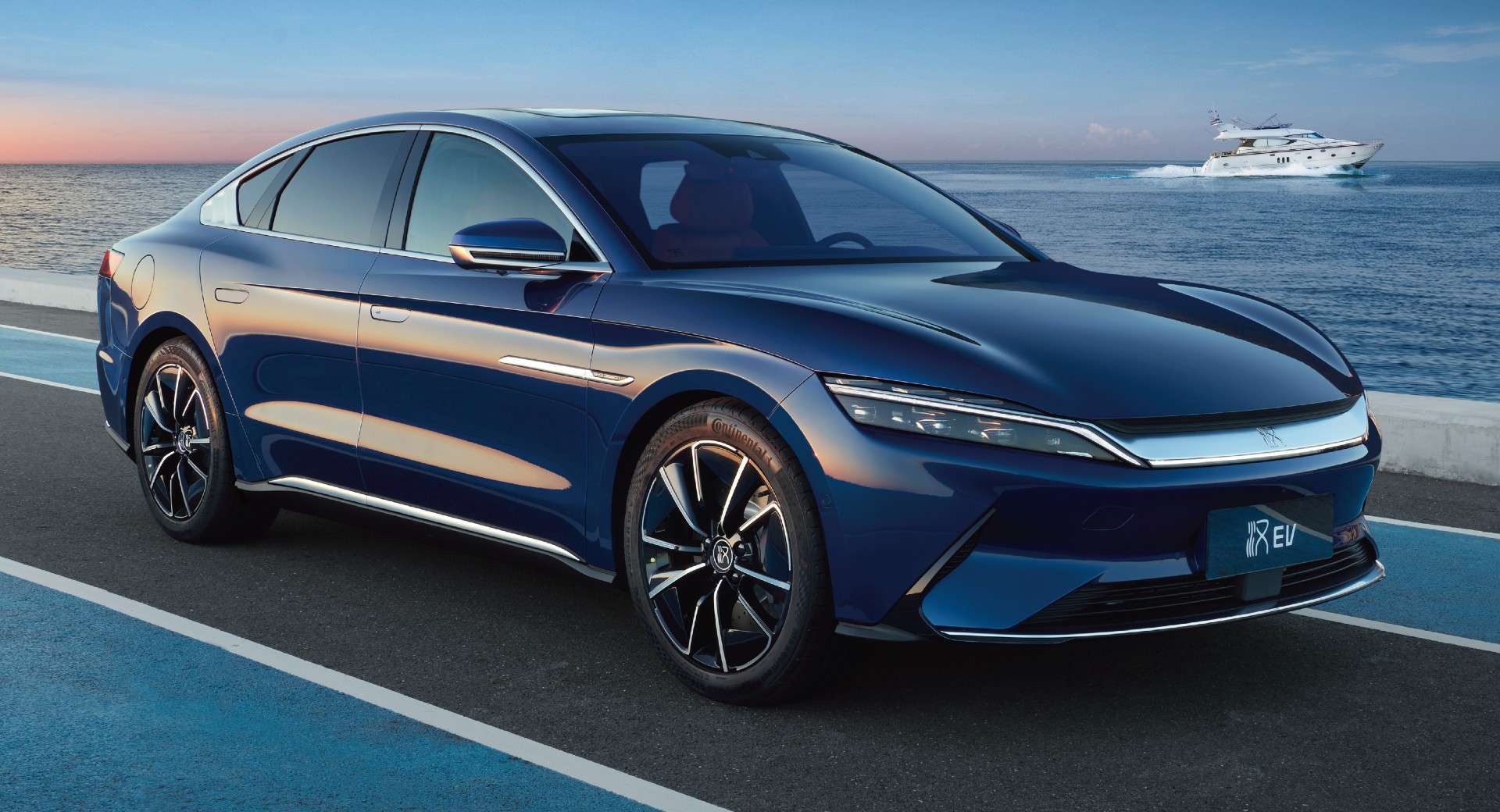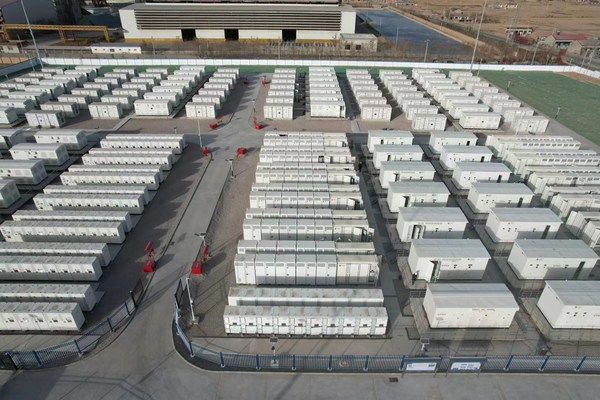EVNow
Well-Known Member
Not sure what you mean by predominantly ICE - they sell 50/50 BEV & PHEV.They sell mainly/mostly/predominately ICE cars. Did you know this before you posted?
You can install our site as a web app on your iOS device by utilizing the Add to Home Screen feature in Safari. Please see this thread for more details on this.
Note: This feature may not be available in some browsers.
Not sure what you mean by predominantly ICE - they sell 50/50 BEV & PHEV.They sell mainly/mostly/predominately ICE cars. Did you know this before you posted?
And to be clear, not only do I want them to succeed in BEVs, I hope they start breaking out the BEV PnLs as that would indicate they are serious and on a path to profitability.Ah so, mea culpa. Thanks...
Source?Not sure what you mean by predominantly ICE - they sell 50/50 BEV & PHEV.
PHEV is ICE.They ditched ICE in favor of PHEV and BEV as of march last year:

BYD Stops Production Of ICE-Only Cars, Focuses On PHEVs And EVs | Carscoops
BYD produced more "New Energy Vehicles" in March than any other automaker in Chinawww.carscoops.com
They are "luxury".I just don't know how they can say something like that. Model 3 and Y is not mainstream? First time I realized I am driving an odd ball car.
I suspect the reason he’s anti-subsidy is because he was concerned they won’t be applied equitably after the first seriously lopsided attempt to create this legislation.I think he's anti-subsidy across the board... I suspect he's not in favor of eliminating subsidies for individual players, and then arbitrarily allowing them for questionable vehicles (like lame 3KWh hybrids).
As such, I suspect he may consider strategies to allow the best-selling BEV to participate....
Here ...Source?
BYD NEV sales were historically 80% BEV. Starting around 2021 their PHEV sales began ramping at ridiculous rates, so they're now roughly 50/50.
We arent the normal consumer. The website is where all ordering occurs. One way or another every Tesla purchaser ends up on the website. I am just stating there is a risk someone looks at Tesla site for a sedan and chooses another brand because they can get with a $7500 tax credit.

 electrek.co
electrek.co
Source?

The Model Y isn’t excluded, all Tesla needs to do is drop the price back below $55kIt may appear stupid if evaluating what POTUS said was factually correct... it technically was, as the IRA credit does indeed allow for an EV to qualify.
Problem is, it excludes the EV model that sells in larger numbers than most of the other manufactures sell put together, and puts 20 EV-mile hybris on equal footing, making the comment seem rather intellectually dishonest.
That's what it appears to me Maye was pointing out, which I don't think is stupid at all.
But quite misleading too ...Haha so strict
That would be fine if the nearly identical other small SUVs like the ID4 had the same treatment, and they do not.The Model Y isn’t excluded, all Tesla needs to do is drop the price back below $55k
Yknow back where it was just two years ago before $17k was added to the price and that people now apparently think should be subsidized by taxpayers after all the price hikes even though people in here talk about how it only costs $40k to make: Regardless of how this goes down, I don’t see that happening.
The surprise to me, and I’m sure some others, was the 7 seater getting an $80k limit. I expected the Y to be treated the same as the 3, they’re almost the same vehicle.
As I expect you know I write a Daily Energy News thread. I've done it here on TMC for the past year but I've done it in other places for several prior years. In the last year it seems like practically every day there is a new domestic-scale battery unit from another vendor come to market, almost always LFP. It has become so prolific I no longer even bother to include them as news items.Those are interesting observations about the storage market. When I wrote
Tesla, TSLA & the Investment World: the Perpetual Investors' Roundtable I was surprised that only one of the three 100MWh systems was made by Tesla. I thought only Tesla was capable of building and selling these things, but apparently Huawei can too. The third one doesn’t state which hardware is used so I doubt it’s Tesla. Your post explains what’s going on here.
On the residential storage side, I’m waiting many years now to hear something from Tesla about my reservation of a solar roof+powerwall installation. My main reason for choosing Tesla is the assumption that a single vendor integrating solar, battery storage and car charging would provide the best solution.
The European grid is greening fast though. We’re in the middle of the winter and we get more and more periods with negative electricity prices. To to point where I start wondering if it still makes economic sense to install residential solar (We can only sell our surplus at market prices, i.e. practically zero when it’s sunny). I even question if it would ever be profitable to install a home battery. Home batteries still seem terribly expensive and of little capacity. 10kWh would only give us a couple of hours backup in the winter. Such a size can only be reasonably used to prevent paying high peak prices. Maybe it’s just better to go for a dynamic (hourly changing) electricity tariff and charge our cars when the electricity is very cheap.

Thank you very much for your well-reasoned post. It's posts like yours that make TMC valuable to me.
I am not an energy storage expert by any means, but I'd like to point out things you state that, in my mind, seem to contradict your argument that TE is dead-in-the-water before it even gets started. Maybe this is not what you're saying, but it seems that way to me. Please clarify for me what I am missing.
Here are the key statements I want to focus on: (1)"The size of that rapidly growing mass market from year-to-year is a closely held secret, if indeed anyone knows all the puzzle pieces. I try to track it through different approaches, but it is nigh-on impossible to quantify."
(2) "Quantifying storage with an equivalent precision was tough. From the limited poor quality signals I could assess, until last year I thought Tesla had overwhelming dominance in the utility segment, but was less obviously dominant in the domestic segment, and there were signs that the commercial segment was a fizzle for everyone."
With regard to statement (1), I don't think you'll get any disagreement from anyone here that a complex market like energy storage is opaque and virtually unknowable. Frankly, I feel this way about all markets. From energy prices to government incentives to cultural/language differences to decades-long intervals of time, it is indeed hard to suss out exactly where the worldwide energy market is headed. Considering we are in the nascent stages of this new industry, I feel it is premature to say with any conviction that anyone, China, US or otherwise, has lost the race to dominance; ok, China may have got the holeshot, but there are plenty of laps to go. Tesla has recently stated that battery bottlenecks are a thing of the past, or are becoming a thing of the past due to increased manufacturing rates of cells (although awfully hard to say if it's true or not), so I am willing to wait a couple of years before concluding TE is dead-in-the-water. I'm surprised you have already concluded, given the opacity of the energy industry, that TE has already lost the game during the first inning.
Regarding statement (2), when you say, "until last year," I have to stop you right there. I mean, last year might have been the most disruptive year in world industry EVER, I don't see what trends you can reliable assume from one of the most tumultuous years on record for all industries as the world was shut down. Everything was tipped upside down and turned inside-out, there is no way anyone can look at one year and conclude a domestic or international segment was won or lost by anyone. We need to wait patiently for a few years to see how all this shakes out, in my humble opinion, unless you have something much more substantial to add other than your observations of the rocky period of 2021-2022.
I'm actually in the middle of Christensen's "Innovator's Dilemma" right now. I feel as if it's hard to apply his argument to making predictions of energy storage/TE because the entire industry is rather new. Like, in my mind, this is practically a brand new technology with nearly unlimited potential, growth that hasn't even begun to be tapped, and unknowable future ramifications. Ok, China might be in the lead, but that doesn't mean other players like Tesla won't find their own niche in a gigantic worldwide market over the next few decades. I'm trying to zoom out and take a bigger view of things, that's all. I really find it impossible to predict any outcomes in energy storage at this time.
I'm not saying you're wrong, you may indeed be 100% correct. I'm just saying that because of how opaque many of these issues are as you readily admit, and because we are still in the first inning of the game and Tesla doesn't even have cell production ramped up, it is a premature to say TE is a lost cause and will fizzle to zero. Another angle you may have not considered is that Elon is connected to the highest echelons of world government and finance--he's always chatting with heads-of-state; just last week he was pictured having what appeared to be an intimate discussion with French president Macron. Elon is connected to world markets and politics like few others are. In America, with SpaceX and Tesla, Elon's companies have practically national-security-level importance. I mean, SpaceX has special satellites for the US military, and is involved in who-knows-how-many other covert operations. Elon sees things you or I will never see.
Again, I thank you for your post. But I'm going to wait and see what happens to TE over the next decade before concluding it's a lost cause. The world is infitely complex and no one knows what the future holds. I'm certainly not betting against the guy who has revolutionized rocketry and made the EV industry practically from scratch.
I think people at the IRS likely ran the numbers using all the different vehicle criteria options at their disposal, printed off reports, sat in a board room or Teams, and picked the option that would create the least burden on taxpayers while still generating incentive for manufacturers and mineral miners/refiners whose operations they want brought into our shores.That would be fine if the nearly identical other small SUVs like the ID4 had the same treatment, and they do not.
The Toyota Highlander and Camry are basically the same vehicle, but that Highlander hybrid will get $7500.
Caution: Electrek
But this is cool!

Tesla fan files trademark for the company to make electric motors for airplanes & boats [Updated]
Tesla is hinting at making electric motors for airplanes, boats, and more in a new trademark filing that went unnoticed.electrek.co


